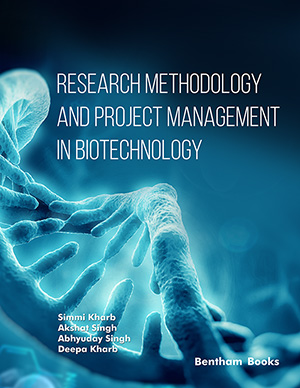
Abstract
Monoclonal antibodies (mAbs) comprise the majority of protein candidates currently in clinical development because of their versatility as therapeutic agents. While traditionally associated with the biotechnology industry, mAb therapeutics are now being developed and marketed by most major pharmaceutical firms. A total of 21 products are approved in the US, with additional products marketed outside the US, and over 200 mAb candidates are currently undergoing clinical study. Benchmark data for mAb therapeutics, such as clinical development and US Food and Drug Administration approval times, approval success rates, and clinical phase transition probabilities, are critical for strategic planning purposes. Trends in these benchmarks for various types of mAbs, with an emphasis on those studied as anticancer and immunological therapeutics, are discussed.
Keywords: Monoclonal antibodies, success rates, clinical study, Food and Drug Administration, marketing approval, benchmarks
Current Pharmaceutical Biotechnology
Title: Monoclonal Antibodies as Innovative Therapeutics
Volume: 9 Issue: 6
Author(s): Janice M. Reichert
Affiliation:
Keywords: Monoclonal antibodies, success rates, clinical study, Food and Drug Administration, marketing approval, benchmarks
Abstract: Monoclonal antibodies (mAbs) comprise the majority of protein candidates currently in clinical development because of their versatility as therapeutic agents. While traditionally associated with the biotechnology industry, mAb therapeutics are now being developed and marketed by most major pharmaceutical firms. A total of 21 products are approved in the US, with additional products marketed outside the US, and over 200 mAb candidates are currently undergoing clinical study. Benchmark data for mAb therapeutics, such as clinical development and US Food and Drug Administration approval times, approval success rates, and clinical phase transition probabilities, are critical for strategic planning purposes. Trends in these benchmarks for various types of mAbs, with an emphasis on those studied as anticancer and immunological therapeutics, are discussed.
Export Options
About this article
Cite this article as:
Reichert M. Janice, Monoclonal Antibodies as Innovative Therapeutics, Current Pharmaceutical Biotechnology 2008; 9 (6) . https://dx.doi.org/10.2174/138920108786786358
| DOI https://dx.doi.org/10.2174/138920108786786358 |
Print ISSN 1389-2010 |
| Publisher Name Bentham Science Publisher |
Online ISSN 1873-4316 |
Call for Papers in Thematic Issues
Artificial Intelligence in Bioinformatics
Bioinformatics is an interdisciplinary field that analyzes and explores biological data. This field combines biology and information system. Artificial Intelligence (AI) has attracted great attention as it tries to replicate human intelligence. It has become common technology for analyzing and solving complex data and problems and encompasses sub-fields of machine ...read more
Latest Advancements in Biotherapeutics.
The scope of this thematic issue is to comprehensively explore the rapidly evolving landscape of biotherapeutics, emphasizing breakthroughs in precision medicine. Encompassing diverse therapeutic modalities, the issue will delve into the latest developments in monoclonal antibodies, CRISPR/Cas gene editing, CAR-T cell therapies, and innovative drug delivery systems, such as nanoparticle-based ...read more
Machine Learning and Artificial Intelligence for Medical Data Analysis and Human Information Analysis in Healthcare
The intersection of machine learning (ML) and artificial intelligence (AI) with the pharmaceutical industry is revolutionizing traditional paradigms in drug discovery and development. These technologies have introduced innovative approaches to analyzing complex datasets and predicting chemical properties, leading to more efficient identification and optimization of drug candidates. By employing sophisticated ...read more
 124
124
- Author Guidelines
- Graphical Abstracts
- Fabricating and Stating False Information
- Research Misconduct
- Post Publication Discussions and Corrections
- Publishing Ethics and Rectitude
- Increase Visibility of Your Article
- Archiving Policies
- Peer Review Workflow
- Order Your Article Before Print
- Promote Your Article
- Manuscript Transfer Facility
- Editorial Policies
- Allegations from Whistleblowers
Related Articles
-
Design, Synthesis and Anticancer Activity of Site Specific Short Chain Cationic Peptide
Current Drug Discovery Technologies Discovery and Development of HDAC Inhibitors: Approaches for the Treatment of Cancer a Mini-review
Current Drug Discovery Technologies Promising Activity of Mammalian Target of Rapamycin Inhibitors in Hematologic Malignancies Therapy
Current Signal Transduction Therapy Fanconi Anemia Proteins, DNA Interstrand Crosslink Repair Pathways, and Cancer Therapy
Current Cancer Drug Targets Pharmacogenomics of Human ABC Transporters: Detection of Clinically Important SNPs by SmartAmp2 Method
Current Pharmaceutical Biotechnology The Risk of Progressive Multifocal Leukoencephalopathy Under Biological Agents Used in the Treatment of Chronic Inflammatory Diseases
Inflammation & Allergy - Drug Targets (Discontinued) The Bcl-2 Family as a Rational Target for the Treatment of B-Cell Chronic Lymphocytic Leukaemia
Current Medicinal Chemistry Mast Cells in Allergic and Inflammatory Diseases
Current Pharmaceutical Design A Comprehensive Overview of Colon Cancer- A Grim Reaper of the 21st Century
Current Medicinal Chemistry Evidence of Association between Epstein Barr Virus Serum Antibodies with HAs and RI as Biomarkers of Active Rheumatoid Arthritis
Current Biomarkers (Discontinued) Subject Index to Volume 4
Current Pharmaceutical Biotechnology Neuroprotective Strategies for Neurological Disorders by Natural Products: An update
Current Neuropharmacology Gamma-Oryzanol – A Multi-Purpose Steryl Ferulate
Current Nutrition & Food Science Chimeric Antigen Receptor T Cell Based Immunotherapy for Cancer
Current Stem Cell Research & Therapy Immunotherapy of Cancer Based on DC-Tumor Fusion Vaccine
Current Immunology Reviews (Discontinued) Versatile Applications of microRNA in Anti-Cancer Drug Discovery: From Therapeutics to Biomarkers
Current Drug Discovery Technologies Epigenetic Basis of Neuronal and Synaptic Plasticity
Current Topics in Medicinal Chemistry Treatment of Refractory p53 Mutation Large B-cell Lymphoma with Daratumumab and Venetoclax Followed by CAR-T Cell Therapy: Case Report and Animal Study
Recent Patents on Anti-Cancer Drug Discovery Chemoradiotherapy of Human Tumors: Novel Approaches from Nanomedicine
Current Pharmaceutical Design Alkylboronate Synthesis Based on Transition Metal-Catalyzed Hydroboration.
Current Organic Synthesis
























